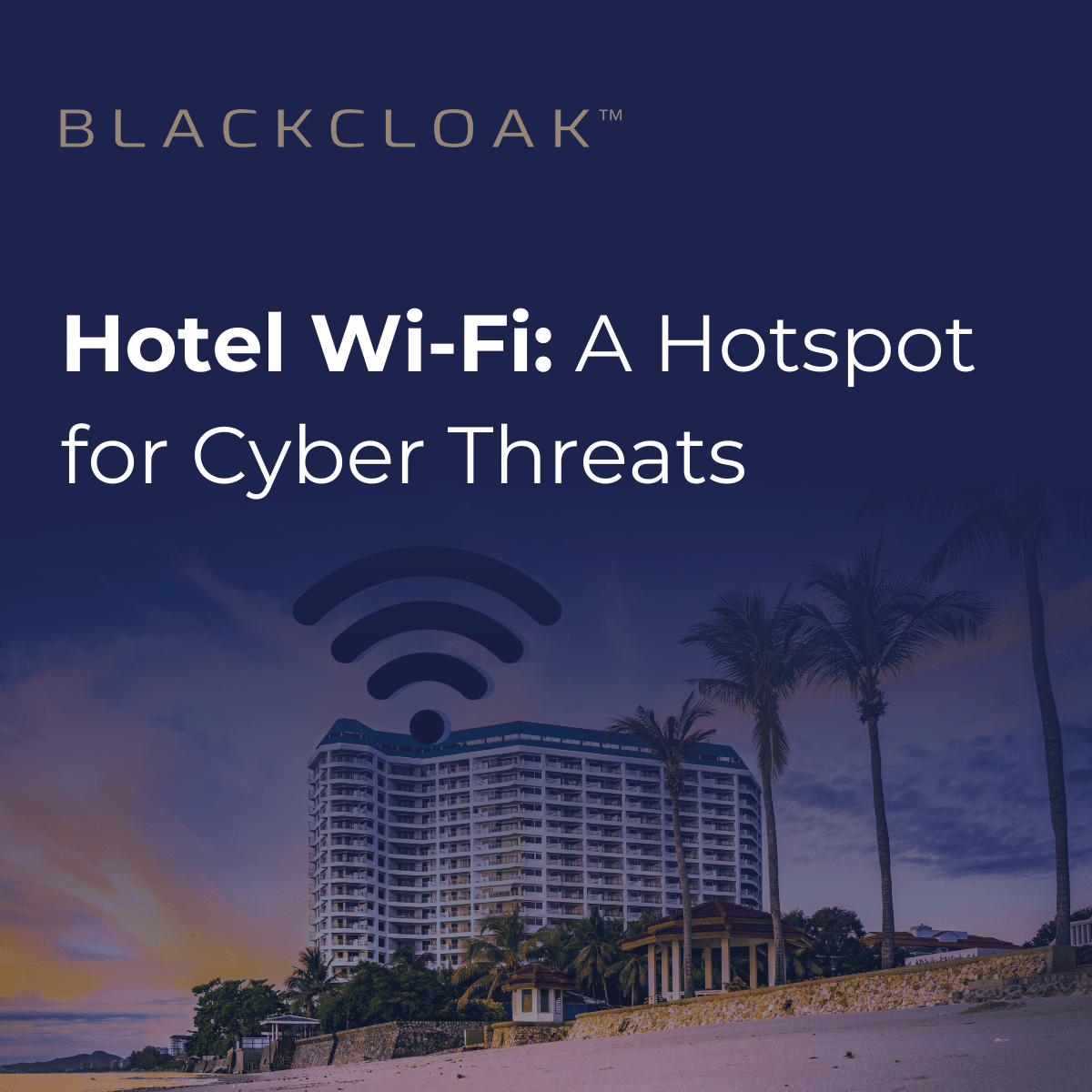Hotel Wi-Fi: A Hotspot for Cyber Threats

Wi-Fi has become an essential utility, one we expect to access wherever we go. It’s particularly true for hotels, where guests expect seamless internet connectivity – to do their jobs while traveling, to stream entertainment while on vacation, to search for local experiences or restaurants when traveling. However, this convenience comes with a significant risk: cyber threats.
The Threat Landscape
Wi-Fi networks in hotels typically prioritize guest access and convenience over robust security practices. In fact, most hotels do not employ someone to watch over IT security on premises. It’s often a centralized role, with little oversight at each individual site. Because of this, security is often lax and users of the network can expose both personal and work data to various types of security threats. In fact, not a single hotel passed a Wi-Fi hacking test across 45 locations in five countries in 2019.
Hotels are the third most common target of cyber attacks, accounting for 13% of all cyber compromises in 2020. Furthermore, as of February 2023, hotels were the third-least secure public Wi-Fi connections among all listed places.
The Impact
Nearly 31% of hospitality organizations have reported a data breach in their company’s history, with 89% being affected more than once in a year. While the average cost of a hospitality breach ($3.4 million) is lower than the cross-industry average ($4.4 million), the reputational impact can cause significant harm to the hotel’s bottom line due to the highly competitive nature of the industry.
The Attack Vectors
What can bad actors do when they breach the hotel’s wifi?
Cybercriminals can monitor a victim’s internet browsing activity or redirect them to phony login pages. They can even deploy an “evil twin attack” where they set up their own malicious network using a name similar to that of the hotel’s network. Guests then mistakenly connect to this malicious network, which gives the criminal direct access to their devices and data.
If guests are working remotely from the hotel, attackers who compromise their devices can then sneak into the network of their employer. From there, the cybercriminal can compromise proprietary or confidential data, upload malware, and deploy ransomware.
The hospitality industry faces a complex security landscape with distinct challenges. As we continue to rely on digital connectivity, it’s crucial to be aware of the risks associated with public Wi-Fi networks, especially in hotels. By understanding these threats and implementing robust security measures, we can enjoy the convenience of hotel Wi-Fi without compromising our digital security.
Travel safe!









